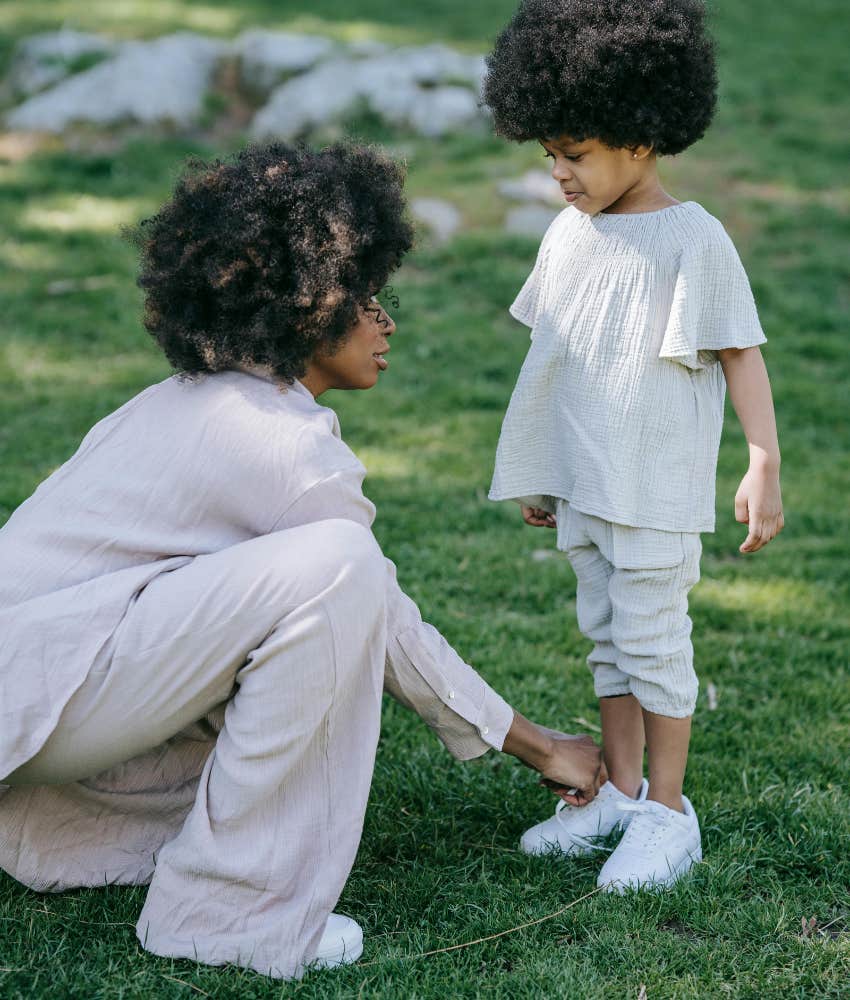2nd-Grade Teacher Shares The 3 Basic Skills Many Of Her Students Can't Comprehend
Sadly, this seems to be a parenting issue.
 Evgeny Atamanenko | Shutterstock
Evgeny Atamanenko | Shutterstock A 2nd-grade teacher with 14 years of experience under her belt turned to Reddit to describe how, in recent years, she's noticed a sharp decline in independence among her students. In fact, she said these 7 and 8-year-olds are coming to her classroom lacking very basic life skills that most kindergartners, at least in past generations, had mastered.
Unsurprisingly, other teachers weighed in with their own observations, and what she has experienced isn't unique. Many of these educators put the blame squarely on parents' shoulders, and they might be on to something. Described by childhood development and parenting experts as "learned helplessness," parents who do too much for their kids, even with the best intentions, have stripped them of their independence. Michelle Smith Lank, owner of Kids World Learning Center in Georgia, put it simply: "The more we do for our children, the less they do for themselves. The less they do for themselves, the more helpless they seem. The more helpless they feel, our response is to do more. Instead of learning life skills, our children are learning helplessness.”
A 2nd-grade teacher shared the 3 basic skills many of her students can't comprehend:
1. Tying their shoelaces
 Barbara Olsen | Pexels
Barbara Olsen | Pexels
The teacher explained that she's been teaching since 2011 and has noticed a decline in the overall capabilities of many kids today. That includes something as basic as tying their shoes. "I teach second grade," she wrote. "Most of them cannot tie their shoes or even begin to try." She added that when she asked students if they were practicing at home with their parents, most of them said no.
According to occupational therapist Melissa Foster, EdD, MS, OTR/L, kids are developmentally ready to start learning how to tie their own shoes at around age 5. Unfortunately, as one teacher on Reddit noted, "I teach 7th grade and the number of kids that still don't know how to tie their shoes is almost staggering."
And while some say that this basic life skill isn't really all that important anymore because most shoes don't even have laces to tie, former first-grade teacher Sharon Knapp Lamberth explained, "Velcro aside, children need to learn to tie ... Conquering this skill is followed by a sense of accomplishment associated with sticking to a task until the task is mastered. The process also develops fine motor skills, visual acuity, patience, tolerance, endurance for frustration, concentration, perseverance, and problem-solving strategies."
Unfortunately, the task also takes time. Time that many parents are sorely lacking. With most families scrambling just to afford childcare and some parents working multiple jobs, teaching kids the bunny ears has to take a backseat to the endless list of more important tasks. It does these kids a disservice, however.
2. Opening car doors
"Parents are still opening car doors for older elementary kids at the morning drop off," the teacher said. "Your child can exit a car by themselves." She then expressed her frustration that a parent was completely shocked that the teachers didn't open the door and help the kids out of the car.
This again highlights the importance of allowing your child to have some independence. For instance, Psychologist Dr. Ronald Stolberg explained that children need to practice solving their own problems so they can carry that skill into adulthood. It may seem like a stretch to use something as simple as opening a car door as an example of independence, but for a second grader, the little things they do on their own can go a long way.
He noted, "Beginning in the toddler years, much of the child's learning is derived from their experiences. Children learn from the consequences of their actions, both positive and negative. If they don't eat dinner, they don't get dessert. If they take a toy from another child, they get a time-out. If they're cooperative with their peers, they make friends. Those experiences are a necessary part of early childhood. They also demonstrate the appropriate level of risk vs. reward. I think opportunities to learn these kinds of things benefit children greatly."
Add opening car doors to that list. Sure, it seems like a minor thing, but even something as simple as a toddler buckling and unbuckling their car seat, getting in and out of the car on their own, these are milestones toward independence, and they should be encouraged.
3. Peeling fruit
 Gladskikh Tatiana | Shutterstock
Gladskikh Tatiana | Shutterstock
This one may seem a little silly, but the teacher insisted that a good portion of her students were completely baffled by unpeeled clementines and apples that weren't cut up. "Everything is cut up and done for them," the teacher wrote. Whenever she brings clementines for snacks, many of the kids ask her to peel the fruit. One time, she said, apples were donated. The kids’ response? They didn’t know what to do with a whole apple. "They never had an apple that wasn't cut up into slices," she wrote.
A psychologist weighed in on the teacher's post with an interesting take: "I really think that the phenomena you are observing is contributing to the sharp decline in the mental health of our children. They have so few skills, leading to really poor self-efficacy and limited problem-solving skills. We manufactured the 'self-esteem' crisis we were so worried about."
It seems clear that kids have been relying on their parents for the smallest tasks, and parents have been complying. Again, it's up to the parent to decide what their child is developmentally ready to tackle in terms of the basics, but simply expecting them to know how to do for themselves does everyone a disservice. It's important to let kids figure things out on their own. It's part of early childhood development. Without fostering that desire for independence, children will grow into adults who struggle to make even the most basic life choices.
Matt Machado is a writer studying journalism at the University of Central Florida. He covers relationships, psychology, celebrities, pop culture, and human interest topics.

